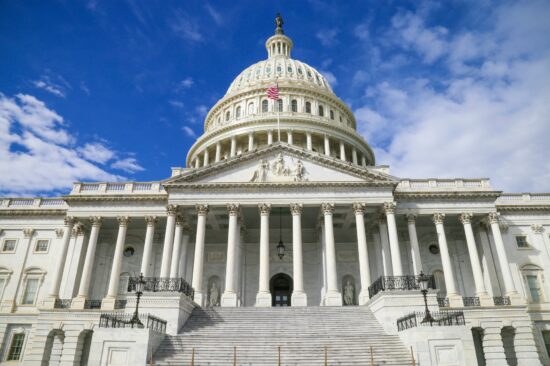I never met Justice Scalia, but as a law student and a constitutional attorney, I feel like I’ve spent hundreds of hours with him, absorbing his majority opinions and scathing dissents with the voracity most people read fiction books on the beach.
In 2008 while working on Capitol Hill, I attended an event at the Supreme Court where Justice Antonin Scalia spoke on his views of the Constitution, the Supreme Court and the role of government in our lives.
Although this is the closest I ever came to meeting Justice Scalia, it was enough to inspire so much of what would come next in my life.
It inspired me to go to law school, but not before serving as a teacher in a low-performing school in order to help shape our next generation of leaders.
It inspired me to get married to my best friend and to start a family at a young age, never forgetting what’s most important in life. (Justice Scalia was married to the same woman for 55 years, with nine children and 28 grandchildren. May we all be so blessed.)
It inspired my wife and I to speak up with passion and conviction for our beliefs, even if it was unpopular and would be mocked within the walls of our law school and beyond. In Con Law II, the constitutional law class that addresses controversial topics ranging from abortion and same-sex marriage to the death penalty and affirmative action, I was the only outspoken conservative Christian in the class. Just as Justice Scalia often did in defending the rights of criminal defendants, my defense of the Constitution as a guarantor of human freedom and human flourishing would often catch some of my progressive colleagues off guard.
But one day in class, my professor asked if anyone was willing to defend Justice Scalia’s defense of morality as a basis for law. Admittedly, I wasn’t paying very close attention. I was tired, and I was probably working during class as I was clerking at the same time I was attending law school. That morning, even I—the Federalist Society President and consistent conservative defender of the Constitution—didn’t feel like putting up a fight.
Then I looked down at my textbook open on the desk, and a fiery dissent from Justice Scalia stared up at me. It inspired me to raise my hand. My professor called on me.
I’d like to actually return to the previous point and defend morality as the basis for the law. In fact, as Justice Scalia points out, we are allowed to have a debate about which conceptions of morality should shape our laws. In fact, with our Constitution, we always have. But to pretend that morality is not the primary basis of our laws is to attack traditional religious norms while denying that secular orthodoxy is not espousing its own version of morality as well. And that is what is most dangerous to our debate and discourse.
My professor smiled and replied, “I had a feeling you’d speak up and say that.”
Those words weren’t my own though. They were clearly shaped by the hours and hours I’ve spent reading Justice Scalia.
Reading Justice Scalia’s opinions or watching him speak requires action from those of us who share his commitment to Biblical truth and admiration of the U.S. Constitution. It spurs us into the arena, into the battle of ideas that define our nation and in defense of a government “of the people, by the people, for the people” as President Lincoln stated more than 150 years ago.
One of my favorite paragraphs in Supreme Court history is found at the conclusion of the joint dissent in the 2012 case challenging the Affordable Care Act. Authored by Justice Scalia, along with Justices Thomas, Kennedy, and Alito, it’s a beautiful articulation of how our Framers viewed the Constitution’s structures as the ultimate protection of individual liberty.
The Constitution, though it dates from the founding of the Republic, has powerful meaning and vital relevance to our own times. The constitutional protections that this case involves are protections of structure. Structural protections—notably, the restraints imposed by federalism and separation of powers—are less romantic and have less obvious a connection to personal freedom than the provisions of the Bill of Rights or the Civil War Amendments. Hence they tend to be undervalued or even forgotten by our citizens. It should be the responsibility of the Court to teach otherwise, to remind our people that the Framers considered structural protections of freedom the most important ones, for which reason they alone were embodied in the original Constitution and not left to later amendment. The fragmentation of power produced by the structure of our Government is central to liberty, and when we destroy it, we place liberty at peril. Today’s decision should have vindicated, should have taught, this truth; instead, our judgment today has disregarded it.
As Justice Scalia once said to a group of Christian lawyers, “God assumed from the beginning that the wise of the world would view Christians as fools . . . and He has not been disappointed. . . . If I have brought any message today, it is this: Have the courage to have your wisdom regarded as stupidity. Be fools for Christ. And have the courage to suffer the contempt of the sophisticated world.”
Scalia’s legacy was shaped first and foremost by his deep Catholic faith. This faith led him to be a family man through and through. It also led him to realize that our fight is against principalities and powers, not against flesh and blood.
He said of his jurisprudential debates, “I attack ideas. I don’t attack people. And some very good people have some very bad ideas. And if you can’t separate the two, you gotta get another day job.”
This core belief also drove him to begood friends with his liberal opponents, taking Justice Kagan hunting not long after she joined the court and famously calling Justice Ruth Bader Ginsburg one of his dearest friends in the entire world.
He famously said he would love to be stranded on a desert island with Justice Ginsburg. Reading her tribute to her late colleague and “best budd[y]” reflects the depths and authenticity of their decades-long friendship.
We live in an era of bitter partisanship, pitchfork populism and peak polarization. The Supreme Court continues to become a more politicized and activist institution, while Justice Scalia continually fought for judicial restraint. We tend to view our opponents as evil individuals who must be overcome. But Justice Scalia knew otherwise and lived otherwise.
As a father, grandfather, friend and one of the greatest defenders of our Constitution, Justice Scalia should be remembered and admired. But more so than that, to Christians and conservative constitutional attorneys like myself, may we remember how he befriended and loved his opponents while unwaveringly standing firm for what he knew was right—with a broad smile, a rapier wit and unmatched passion.
Rest in Peace, Justice Antonin Scalia. Thank you.










